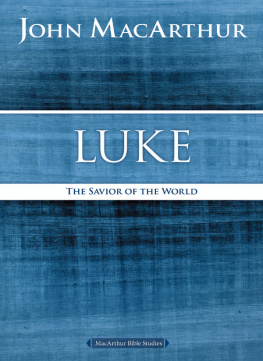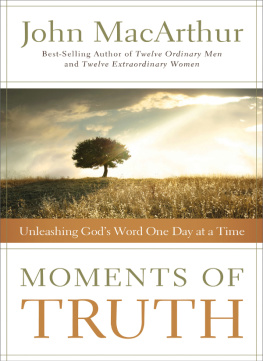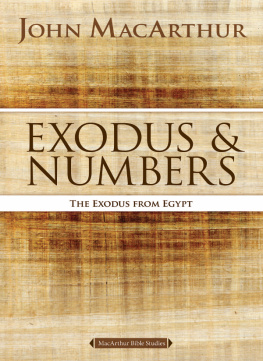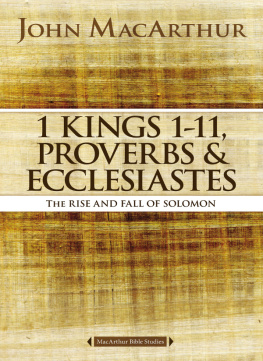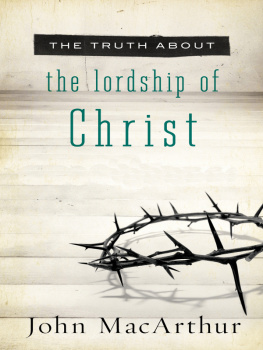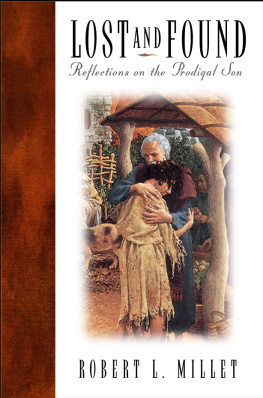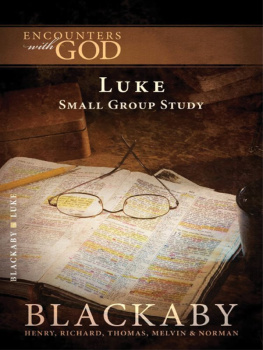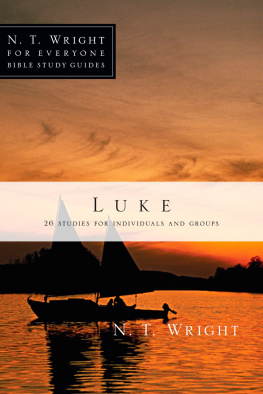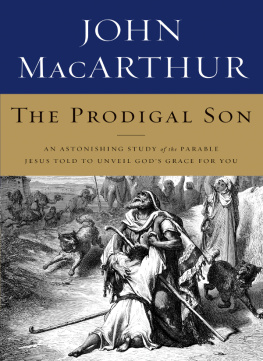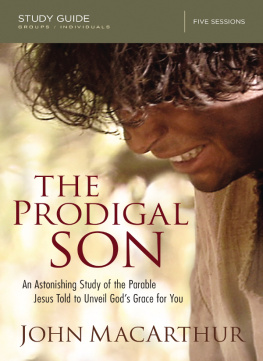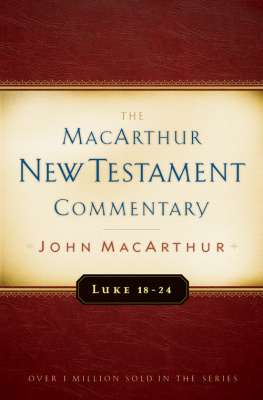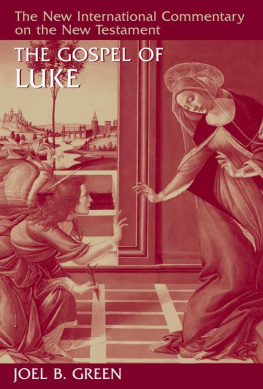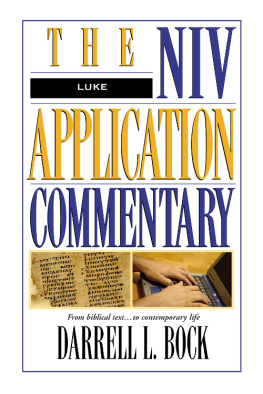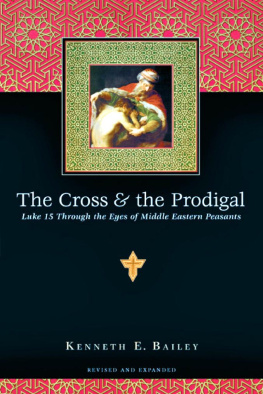MacArthur - Luke
Here you can read online MacArthur - Luke full text of the book (entire story) in english for free. Download pdf and epub, get meaning, cover and reviews about this ebook. year: 2015, publisher: Thomas Nelson, genre: Religion. Description of the work, (preface) as well as reviews are available. Best literature library LitArk.com created for fans of good reading and offers a wide selection of genres:
Romance novel
Science fiction
Adventure
Detective
Science
History
Home and family
Prose
Art
Politics
Computer
Non-fiction
Religion
Business
Children
Humor
Choose a favorite category and find really read worthwhile books. Enjoy immersion in the world of imagination, feel the emotions of the characters or learn something new for yourself, make an fascinating discovery.
Luke: summary, description and annotation
We offer to read an annotation, description, summary or preface (depends on what the author of the book "Luke" wrote himself). If you haven't found the necessary information about the book — write in the comments, we will try to find it.
Luke — read online for free the complete book (whole text) full work
Below is the text of the book, divided by pages. System saving the place of the last page read, allows you to conveniently read the book "Luke" online for free, without having to search again every time where you left off. Put a bookmark, and you can go to the page where you finished reading at any time.
Font size:
Interval:
Bookmark:
LUKE
MACARTHUR BIBLE STUDIES
2007, John MacArthur.
All rights reserved. No portion of this book may be reproduced, stored in a retrieval system, or transmitted in any form or by any meanselectronic, mechanical, photocopy, recording, or any otherexcept for brief quotations in printed reviews, without the prior permission of the publisher.
John MacArthur
Unleashing Gods Truth, One Verse at at a Time.
Unleashing Gods Truth, One Verse at a Time is a trademark of Grace to You. All rights reserved.
Published in Nashville, Tennessee, by Nelson Books, an imprint of Thomas Nelson. Nelson Books and Thomas Nelson are registered trademarks of HarperCollins Christian Publishing, Inc.
Nelson Books titles may be purchased in bulk for education, business, fundraising, or sales promotional use. For information, please email SpecialMarkets@ThomasNelson.com
Produced with the assistance of the Livingstone Corporation. Project staff include Jake Barton, Mary Horner Collins, and Andy Culbertson.
Project editor: Len Woods
Scripture quotations marked NKJV are taken from The Holy Bible, New King James Version.
1979, 1980, 1982, 1992 Thomas Nelson, Inc. Publishers.
Keys to the Text and Truth for Today material is taken from the following sources:
1 Corinthians (electronic ed.). 1984, 1996 by John MacArthur. MacArthur New Testament Commentary Series. Published by Moody Press, Chicago, Illinois. Used by permission.
God in the Manger. 2001 by John MacArthur. W Publishing Group, a division of Thomas Nelson, Inc.
The MacArthur Quick Reference Guide to the Bible. 2001 by John MacArthur.
W Publishing Group, a division of Thomas Nelson, Inc.
The MacArthur Study Bible (electronic ed.). John MacArthur, General Editor. 1997 by Word Publishing, a division of Thomas Nelson, Inc. All rights reserved. Used by permission.
Matthew, 17, 815, 1623, 2428 (electronic ed.). MacArthur New Testament Commentary Series. 1989 by John MacArthur. Published by Moody Press, Chicago, Illinois. Used by permission.
Truth for Today: A Daily Touch of Gods Grace. 2001 by John MacArthur. Published by J. Countryman Publishers, Nashville, Tennessee.
Twelve Ordinary Men. 2002 by John MacArthur. W Publishing Group, a division of Thomas Nelson, Inc.
Cover Art by Holly Sharp Design
Interior Design and Composition by Joel Bartlett, Livingstone Corporation
ISBN: 978-0-7180-3503-7
ISBN: 978-0-718-03522-8 (eBook)
15 16 17 18 19 RRD 6 5 4 3 2 1
CONTENTS
As with the other three Gospels, the title is derived from the authors name. According to tradition, Luke was a Gentile. The apostle Paul seems to confirm this, distinguishing Luke from those who were of the circumcision (Col. 4:11, 14). That would make Luke the only Gentile to pen any books of Scripture. He is responsible for a significant portion of the New Testament, having written both this Gospel and the book of Acts.
Very little is known about Luke. He almost never included personal details about himself, and nothing definite is known about his background or his conversion. Both Eusebius and Jerome identified him as a native of Antioch (which may explain why so much of the book of Acts centers on Antiochsee Acts 11:1927; 13:13; 14:26; 15:2223, 3035; 18:2223). Luke was a frequent companion of the apostle Paul, at least from the time of Pauls Macedonian vision (Acts 16:9, 10) right up to the time of Pauls martyrdom (2 Tim. 4:11).
The apostle Paul referred to Luke as a physician (Col. 4:14). Lukes interest in medical phenomena is evident in the high profile he gave to Jesus healing ministry (e.g., 4:3840; 5:1525; 6:1719; 7:1115; 8:4347, 4956; 9:2, 6, 11; 13:1113; 14:24; 17:1214; 22:5051). In Lukes day, physicians did not have a unique vocabulary of technical terminology; so when Luke discusses healings and other medical issues, his language is not markedly different from that of the other Gospel writers.
AUTHOR AND DATE
The gospel of Luke and the book of Acts clearly were written by the same individual (see 1:14; Acts 1:1). Although he never identified himself by name, it is clear from his use of we in many sections of Acts that he was a close companion of the apostle Paul (Acts 16:1017; 20:515; 21:118; 27:128:16). Luke is the only person, among the colleagues Paul mentions in his own epistles (Col. 4:14; 2 Tim. 4:11; Philem. 24), who fits the profile of the author of these books. That accords perfectly with the earliest tradition of the church, which unanimously attributed this Gospel to Luke.
Luke and Acts appear to have been written at about the same timeLuke first, then Acts. Combined, they make a two-volume work addressed to Theophilus (1:3; Acts 1:1), giving a sweeping history of the founding of Christianity, from the birth of Christ to Pauls imprisonment under house arrest in Rome (Acts 28:3031).
The book of Acts ends with Paul still in Rome, which leads to the conclusion that Luke wrote these books from Rome during Pauls imprisonment there (ca. AD 6062). Luke records Jesus prophecy of the destruction of Jerusalem in AD 70 (19:4244; 21:2024) but makes no mention of the fulfillment of that prophecy, either here or in Acts. Luke made it a point to record such prophetic fulfillments (see Acts 11:28), so it is extremely unlikely he wrote these books after the Roman invasion of Jerusalem. Acts also includes no mention of the great persecution that began under Nero in AD 64. In addition, many scholars set the date of Jamess martyrdom at AD 62, and if that was before Luke completed his history, he certainly would have mentioned it. So, the most likely date for this Gospel is AD 60 or 61.
BACKGROUND AND SETTING
Luke dedicated his works to most excellent Theophilus (literally lover of God1:3; see Acts 1:1). This designation, which may be a nickname or a pseudonym, is accompanied by a formal address (most excellent)possibly signifying that Theophilus was a well-known Roman dignitary, perhaps one of those who had turned to Christ in Caesars household (Phil. 4:22).
It is almost certain, however, that Luke envisioned a much broader audience for his work than this one man. The dedications at the outset of Luke and Acts are like the formal dedication in a modern book. They are not like the address of an epistle.
Luke expressly stated that his knowledge of the events recorded in his Gospel came from the reports of those who were eyewitnesses (1:12)strongly implying that he himself was not an eyewitness. It is clear from his prologue that his aim was to give an ordered account of the events of Jesus life, but this does not mean he followed a strict chronological order in all instances.
By acknowledging that he had compiled his account from various extant sources, Luke was not disclaiming divine inspiration for his work. The process of inspiration never bypasses or overrides the personalities, vocabularies, and styles of the human authors of Scripture. The unique traits of the human authors are always indelibly stamped on all the books of Scripture. Lukes research is no exception to this rule. The research itself was orchestrated by divine Providence. And in his writing, Luke was moved by the Spirit of God (2 Pet. 1:21). Therefore, his account is infallibly true.
HISTORICAL AND THEOLOGICAL THEMES
Lukes style is that of a scholarly, well-read author. He wrote as a meticulous historian, often giving details that helped identify the historical context of the events he described (1:5; 2:12; 3:12; 13:14).
A running theme in Lukes gospel is Jesus compassion for Gentiles, Samaritans, women, children, tax collectors, sinners, and others often regarded as outcasts in Israel. Every time the Gospel mentions a tax collector, it is in a positive sense (3:12; 5:27; 7:29; 15:1; 18:1013; 19:2). Yet, Luke did not ignore the salvation of those who were rich and respectablee.g., 23:5053. From the outset of Jesus public ministry (4:18) to the Lords final words on the cross (23:4043), Luke underscored this theme of Christs ministry to the pariahs of society. Again and again he showed how the Great Physician ministered to those most aware of their need (see 5:3132; 15:47; 3132; 19:10).
Next pageFont size:
Interval:
Bookmark:
Similar books «Luke»
Look at similar books to Luke. We have selected literature similar in name and meaning in the hope of providing readers with more options to find new, interesting, not yet read works.
Discussion, reviews of the book Luke and just readers' own opinions. Leave your comments, write what you think about the work, its meaning or the main characters. Specify what exactly you liked and what you didn't like, and why you think so.

